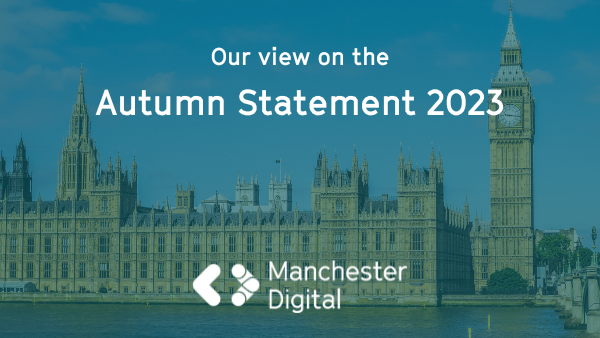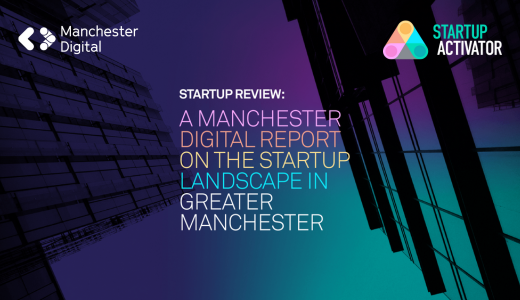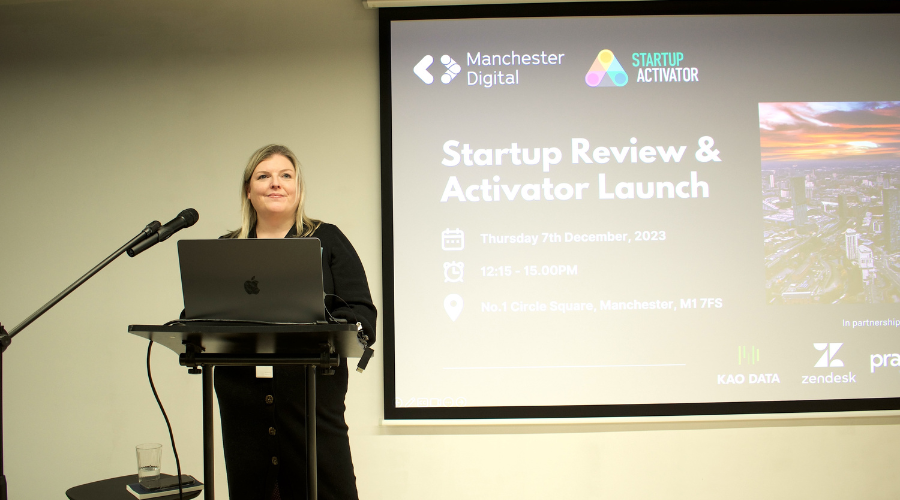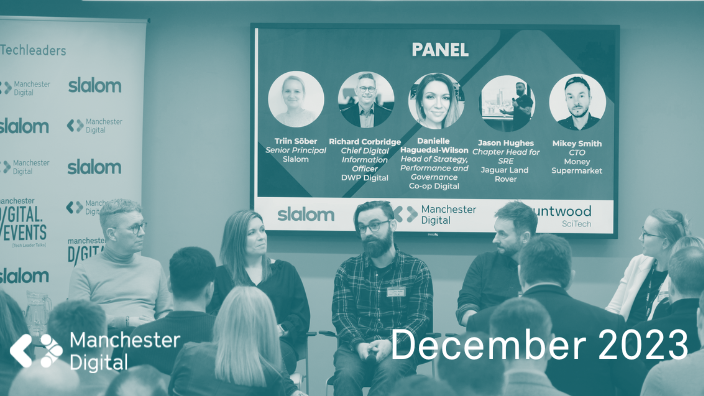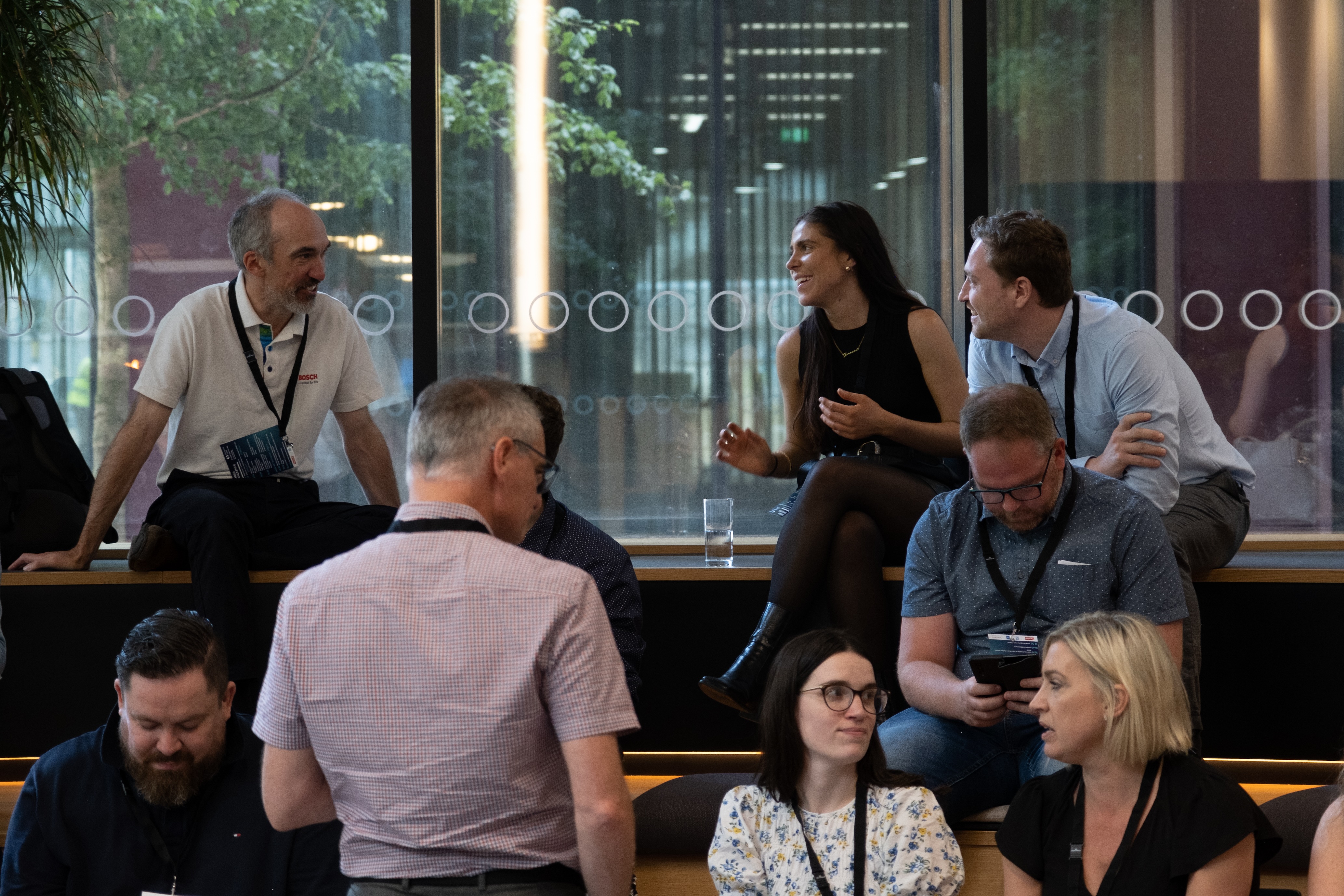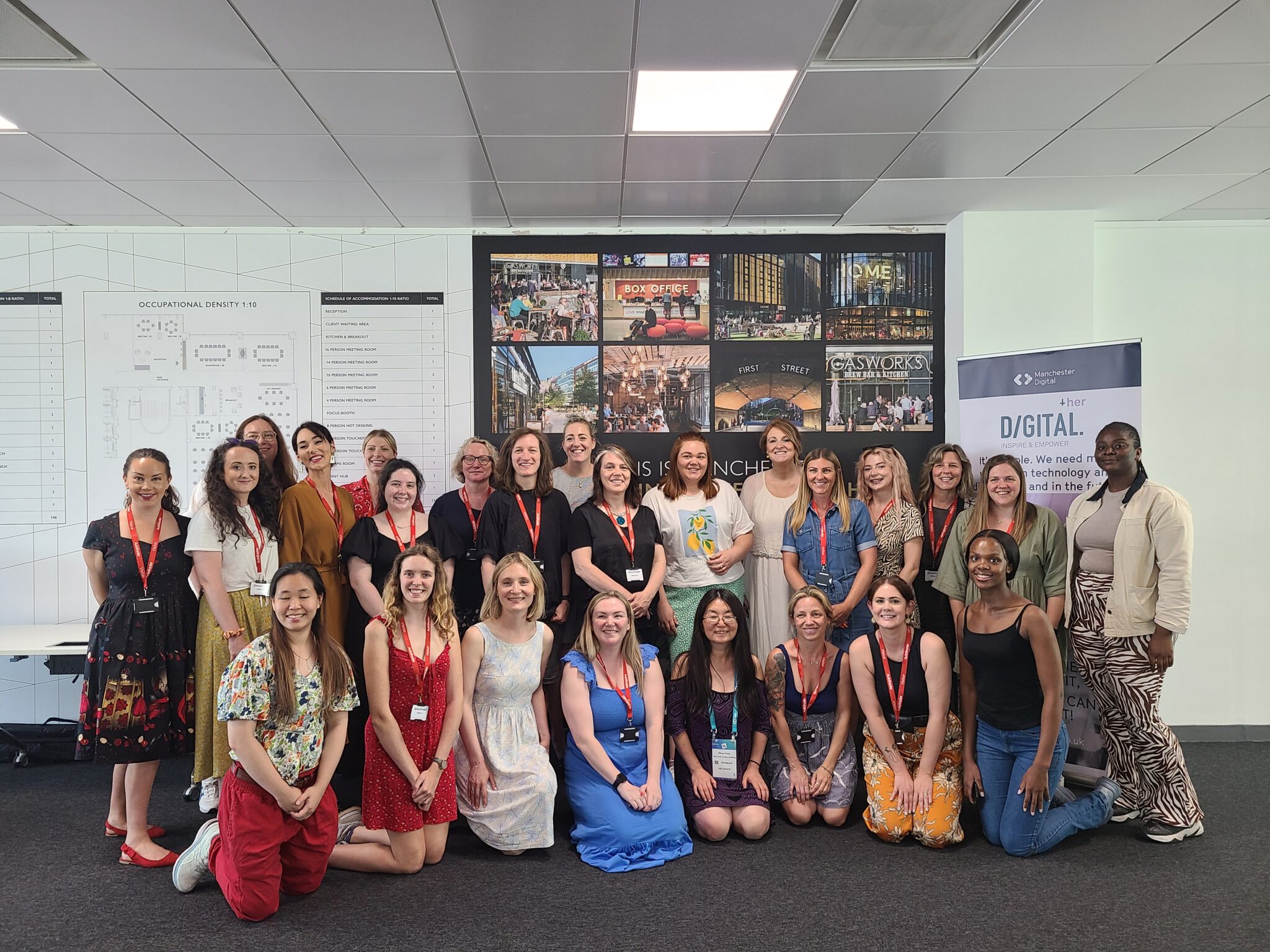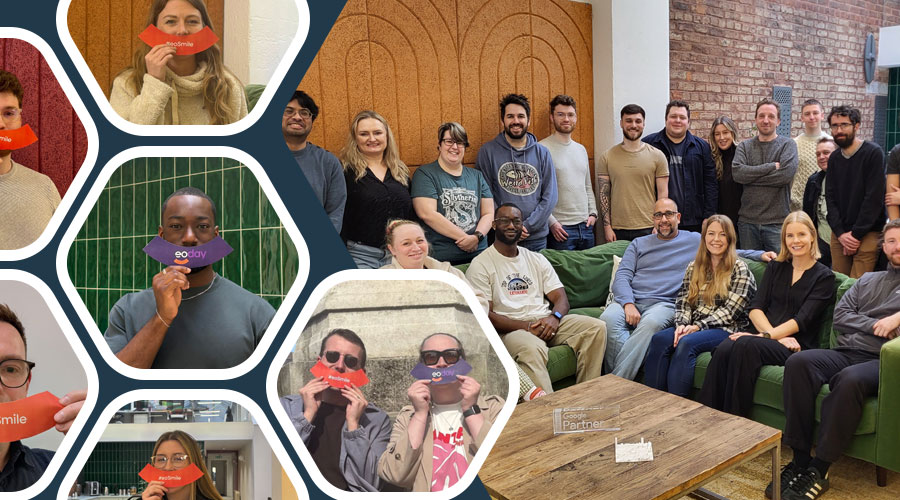
In 2019, I-COM became one of the first digital agencies in the North West - and the very first in Manchester - to adopt an employee-owned structure. This strategic move was deeply rooted in our commitment to fostering open communication, collaboration and team involvement in shaping the agency's future. By transitioning to this model, our employees now hold the majority stake in the business, aligning ownership with the collective effort that drives our success.
How Does Employee Ownership Work at I-COM?
At I-COM, the majority stake is held by an Employee Ownership Trust (EOT) on behalf of all employees. This structure ensures that every team member has a vested interest in the company's performance. Supported by experienced leadership and the trust board, our employees play a decisive role in how I-COM operates. This shared responsibility cultivates a sense of pride in our achievements and reinforces a strong team spirit.
What Inspired the Decision to Transition to Employee Ownership?
The decision to transition to employee ownership was driven by Mike Blackburn and Ravi Bhalla’s recognition of the contributions our employees make to the business.
“The talents of our people are what make us successful as a business. Historically, we’ve always given back some of our profits by way of bonuses, but the EOT makes this a formal commitment to our people.
“In today’s employment market where skilled people are in short supply, giving the team a stake in the company seems like the next logical step to take. We’re sure it will encourage engagement and focus the team on delivering even greater results for our clients.”
Ravi Bhalla, managing director and founder of I-COM

What Are the Biggest Benefits of Being Employee-Owned?
The benefits of being employee-owned are:
- Enhanced employee satisfaction:employees are 73% more likely to experience increased satisfaction, motivation and work-life balance in an employee-owned environment.
- Improved business performance:this model leads to a 20% boost in performance, demonstrating its effectiveness in driving success.
- Increased trustworthiness:58% of consumers view employee-owned businesses as more trustworthy, highlighting the positive perception such companies enjoy in the marketplace.
Are There Any Challenges That Come with This Structure?
While the transition to employee ownership has been positive, it does require a cultural shift. Employees need to adapt to their new roles as indirect owners, and management needs to embrace more transparent decision-making. Additionally, it can take time for the full benefits of employee ownership to materialise, and companies need to be prepared to invest in change management and employee education.
How Has Employee Ownership Impacted I-COM’s Culture?
Employee ownership has positively impacted our company culture by fostering a sense of shared responsibility and collaboration. Team members are more engaged and motivated, knowing that their contributions directly influence the company's success. This shared ownership has cultivated a culture of accountability and mutual respect, enhancing overall job satisfaction.
Do Employees Feel a Greater Sense of Responsibility and Engagement?
With a stake in the company's success, employees feel a heightened sense of responsibility and engagement. We have financial dashboards, regular EO updates, monthly drop-in sessions for the team, and surveys to help everyone understand where they are in their EO journey. This helps reinforce the ownership mentality and encourages proactive problem-solving and innovation, as team members are directly invested in the outcomes of their efforts.
“Even before I-COM became employee-owned, I always felt that the contribution I was making to I-COM mattered and made a difference. The company has always been great at recognising their employees' commitment and ensuring that people feel part of something. This meant that when we did become employee-owned, it felt very natural and reinforced how I had always felt about the business. On a personal level, I have felt very privileged to be appointed as a representative for the Trust, and it's something I feel that my drive and determination make me a good fit for. It's empowering to be involved in big decisions that shape the business and see first-hand the impact that they have.”
Kate Smith, client services director

How Do You Handle Decision-Making and Leadership Within I-COM?
Decision-making at I-COM is a collaborative process. While we have a leadership team to guide strategic direction, input from employees is highly valued. The Employee Ownership Trust plays a crucial role in representing employee interests, ensuring that decisions align with the collective goals of the team.
Has Employee Ownership Changed the Way Teams Collaborate?
Yes, employee ownership has enhanced collaboration across teams. Knowing that everyone's success is interconnected encourages open communication and teamwork. This environment has led to more innovative solutions and a unified approach to achieving our objectives.
How Do You Ensure That New Hires Understand and Embrace the Ownership Mindset?
We start the conversation before someone even joins the business. Employee ownership is something we discuss during the interview process so that candidates understand how the model works and what it means for their role. It also helps us assess whether they’re a good fit for a business where collaboration, accountability, and shared responsibility are part of day-to-day working life.
Once someone joins the team, the ownership model is built into our onboarding. We talk openly about how the EOT works, what it means in practical terms, and how every employee contributes to the agency’s success. Regular employee ownership meetings help reinforce this, giving both new and longstanding team members a space to share ideas and stay connected to the wider direction of the business.
Peer-to-peer support also plays a big part. We’ve found that ownership culture is most effectively passed on by the team itself - through conversations, mentoring, and the way we work together day-to-day. That ongoing support helps new hires feel like part of something shared, rather than just joining a new workplace.
Do You See Employee Ownership Becoming More Common in Your Industry?
We’re already seeing clear signs of growth in this area. While employee ownership is still relatively new to the digital marketing space, interest is rising. Agencies are increasingly looking for ways to improve retention, foster a more committed workforce, and build long-term resilience. Employee ownership speaks directly to those aims.
Although there’s limited data specifically for marketing agencies, the broader trend across the UK is clear. Between 2020 and 2022, the number of employee-owned businesses more than doubled, and by June 2023, the sector had grown by 37% in just 12 months, reaching a total of 1,418 businesses. Notably, the Information & Communication sector - which includes digital marketing - accounted for 8.1% of those businesses.
It’s encouraging to see other agencies begin exploring this route. It shows a shift in how businesses think about structure, engagement and sustainability. As the employee-owned sector continues to expand and evolve, we expect more agencies to join the conversation - whether they’re looking for a succession plan, a stronger culture, or a different way to grow.
“Being part of an employee-owned business makes leadership more rewarding because success is something we achieve together. We’re all invested in I-COM’s future, driven by values like collaboration, accountability and relentless improvement. This shared commitment not only strengthens us as a team, but also ensures we deliver innovative, results-driven solutions for our clients.”
David Walsh, director of technology solutions

How Does Being Employee-Owned Influence the Way You Work with Clients?
Our employee-owned structure means that clients work with a team that's personally invested in delivering exceptional results. This personal investment fosters deeper partnerships, as our success directly benefits both the agency and the individuals who own it. Clients can trust that we're committed to their success because it's intrinsically linked to ours.
Do You Think Employee Ownership Gives I-COM a Competitive Edge? If So, How?
Employee ownership absolutely provides a competitive edge by enhancing employee engagement, which leads to higher productivity and better client outcomes. This structure also attracts top talent who are seeking more than just a job - they want to be part of a collaborative and rewarding environment.
Has This Structure Led to Better Client Retention or Business Growth?
We’ve seen clear benefits in both areas. More than half of I-COM’s team have been with the business for over seven years, which means our clients work with people who understand their business inside out. That continuity has helped us build strong, long-lasting relationships, where knowledge and trust grow year after year.
We’ve also seen employee ownership become a factor in winning new business. Clients have told us directly that our structure stood out - it gave them confidence that they’d be working with a stable, invested team that’s committed for the long term. In a market where consistency and trust matter, being employee-owned has become part of our appeal.
What Impact Does Employee Ownership Have on Innovation and Creative Thinking?
Employee ownership fosters an environment where team members feel empowered to share ideas and take calculated risks. This empowerment leads to increased innovation and creative thinking, as employees are motivated to contribute to the company's success in meaningful ways.
"Being on the employee-owned trust board is a huge honour; it allows me to represent my colleagues and have a direct impact on shaping I-COM’s future. It’s rewarding to contribute to decisions that benefit both the team and the business. Together, we ensure that everyone’s voice is heard and valued."
Chloe Richards, email and content marketing strategist

What Are the Biggest Lessons You've Learned from This Business Model?
One of the most valuable lessons we’ve learned at I-COM is how powerful clear, open communication can be in building genuine engagement. Moving to employee ownership gave us the opportunity - and the responsibility - to involve the whole team more deeply in how the business is run. That shift doesn't happen overnight. We've had to learn how to communicate differently, and make space for a wider range of voices in day-to-day decisions. But the payoff has been a team that’s more engaged, more informed, and more connected to the direction we’re heading in.
We've also found real value in being part of the wider employee ownership community. The Employee Ownership Association (EOA) has been an excellent resource, both practically and culturally. Through the EOA and our interactions with other EO businesses, we’ve been able to share ideas, learn from others who’ve been on similar journeys, and contribute to a growing network of companies that are rethinking how businesses can work. There's a strong sense that we’re all learning together, and that collective spirit has been one of the most rewarding parts of the transition.
What's Next for I-COM as an Employee-Owned Business?
We're continuing to embed the principles of employee ownership into how we operate - both day-to-day and in our long-term planning. A big part of that is keeping engagement high and making sure everyone feels connected to where the business is heading. We’re running regular workshops, gathering feedback through surveys, and using that input to make meaningful changes that support both the team and our growth.
One of the big goals we’re working towards is ‘Financial Freedom Day’ - the point at which the EOT has fully repaid the debt incurred from acquiring the business, allowing for greater flexibility in profit distribution and employee benefits.
What Should Marketing Agencies Keep in Mind If They Are Transitioning into Employee Ownership?
- Assess alignment: ensure that employee ownership aligns with your agency's values and long-term goals.
- Prepare for transition: develop a clear plan for transitioning to employee ownership, including legal and financial considerations.
- Engage your team early: open discussions with employees about what this transition means and how they can actively participate in shaping the business.
- Create clear governance structures: while employee ownership fosters inclusivity, decision-making should remain structured to ensure efficiency.
- Prioritise transparency: open financial reporting, regular company updates, and clear goal-setting help maintain trust and alignment.
- Develop an ownership mindset: employee ownership is most successful when employees genuinely understand their role as business owners. Agencies should invest in training to instil financial literacy, business strategy knowledge and leadership skills within their teams.
Final Thoughts: Why Employee Ownership Is the Future of I-COM
Becoming an employee-owned agency has strengthened I-COM’s culture, improved business resilience, and fostered a collaborative, innovative work environment. Our clients benefit from working with a team that is directly invested in delivering exceptional results, while our employees enjoy greater job satisfaction, engagement and financial participation in the agency's success.
